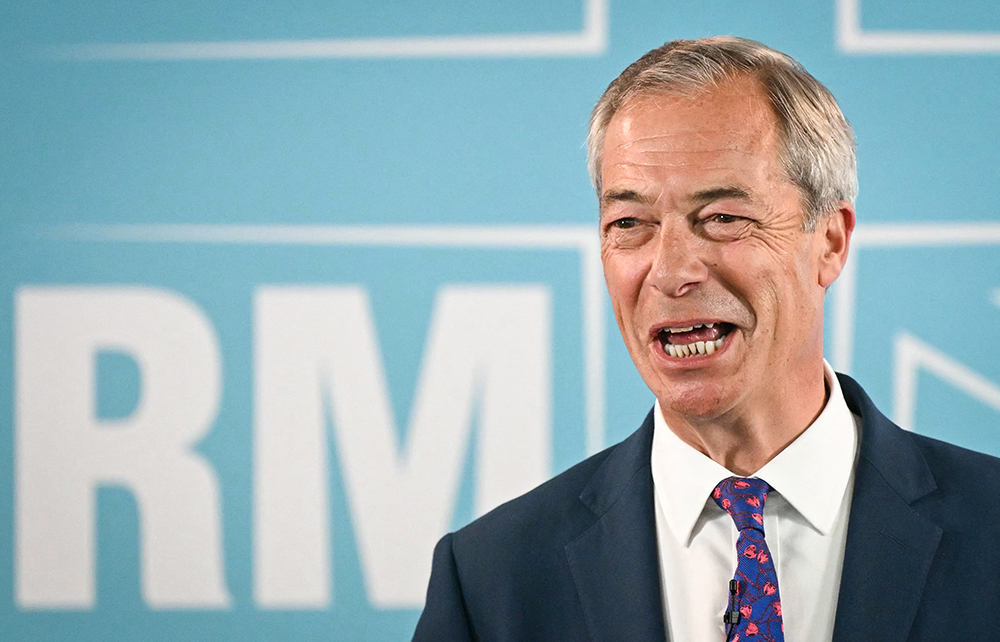The opposite of attraction is repulsion. Political commentary gives too little attention to a party’s (or leader’s) capacity to repel. Attractiveness to some may itself inspire disgust in others, simultaneously lifting support yet imposing a ceiling upon how high.
Here’s a quiz. Our last five elections have seen Labour and the Conservatives slugging it out for primacy, each election leaving one of them the loser. It is upon the losers that I wish to focus. Here, from those five results, are the raw (rounded) totals of votes cast, nationwide, for the loser in each case. I want you to guess which party leader lost which election, so I’ve ranked the totals in decreasing order of magnitude so you can’t tell which loser garnered which of the following five harvests: 12.9 million, 10.3 million, 9.3 million, 8.8 million and 8.6 million.
The Tory right conclude they can ignore us while they dance with Farageists, and that we’ll come back
The general elections are: 2005 (Blair vs Howard); 2010 (Brown vs Cameron); 2015 (Cameron vs Miliband); 2017 (May vs Corbyn); 2019 (Johnson vs Corbyn). Any guesses which loser got the most votes?
Jeremy Corbyn easily wins the losers’ popularity race. The first election, in which he stood against Theresa May (2017), yielded Labour nearly 13 million votes. In Corbyn’s second election (2019) he fell back to some ten million votes, but still beat fellow losers Michael Howard in 2005 and Ed Miliband in 2015. Corbyn is the most popular loser any party has had in this century. Both his losing totals beat Blair’s winning vote in 2005.
Counter-intuitive? Perhaps, because your instinct (and mine) was right: this man was a walking electoral disaster, the death star of the political left. Yet he was also a superb harvester of support. But those two apparently contradictory statements can be reconciled by a third. Corbyn’s appeal was powerfully but intensely focused: on disaffected people, especially among the young. He was able to draw in a whole swath of voters who might not have voted at all, were it not for his leftist ‘magic grandpa’ appeal, and it’s said that half a million people joined the Labour party because of him. But he scared millions more.
Corbyn’s genius was to maximise electoral yield from a substantial but minority section of the population. His downfall was that he couldn’t do it – it cannot be done – without by the same token repelling millions among the rest. For every voter who thrilled to the chant of ‘Oh Jeremy Corbyn!’ at Glastonbury there will have been two who recoiled in alarm. His whole appeal was calculated to arouse antipathy among a majority, while (and by) galvanising a minority.
If you aspire to lead from the fringe, there is no way out of this conundrum. Your advance will create its own resistance. You will capture the fringe, the left-behind, the alienated, the dispossessed and the frankly kooky, and the capture will swell support, but by the company you keep you will arouse antipathy among the rest. You will trigger the immune system of the majority, boosting electoral antibodies.
I call this the antipathy factor, and suspect that Conservative strategists, and some of Rishi Sunak’s advisers, have not thought hard enough about the antipathy factor when pitching the Tory appeal to the right, and to potential Reform voters. If, God forbid, the Tory party starts teaming up in opposition with Nigel Farage and his band, they will curdle their appeal to millions of voters in London, the south and west of England, and those green and pleasant parts of the English Midlands and North where conservatism with a small c is no less powerful, no less rooted, no less the default disposition, for being of the mild variety.
Some on the right of my old party, and perhaps some among this magazine’s readership, fall into error in their view of more centrist, more moderate, more (I’m afraid to say) old-fashioned Tory-inclined voters. They think that because our political instincts are mild, because our outlook is gentler and more tolerant than some among the party’s new right, because we are not by instinct haters and because our ideological leanings are less certain and less fierce than theirs, we are soft and our views are weakly held. They conclude that they can ignore us while they dance with Farageists, and we’ll come back to them at the end of the ball. They think they can shepherd us on to the same wagon as their new friends and, grumbling a bit, we’ll grit our teeth and stay for the ride. They think you can add a new cohort of voters on one side, without any of the old cohort dropping off on the other.

They’re in for a shock; and if the Tory rump that manages to get elected on 4 July thinks it can embrace the head-banging right without sharpening the antipathies of the rest of Britain, they’ll be heading for two outcomes. Yes, they will forge a political movement that can always be sure of attracting up to a quarter of the British population. But they can be equally sure of repelling the rest. They will not govern again.
In Farage I see someone who from a public platform has never uttered one word of kindness towards the fellow citizens he is not trying to recruit, never extended a conciliating hand to anyone who differs, never built a bridge or talked about compromise, and never indicated sympathy with (or even interest in) a contrary opinion, or any willingness to reconsider his own. The grin is broad but the vibe is negative: whom or what do we hate? Come hate with me.
Writing in the Telegraph last week, Petronella Wyatt said the test should be how you’d feel about this man marrying your daughter. You’d shudder, wouldn’t you? At their peril do party strategists underestimate the potency of the shudder. When the Tories crash next month it will not be because they failed to win over Reform supporters, but – at least in part – because they tried to.








Comments